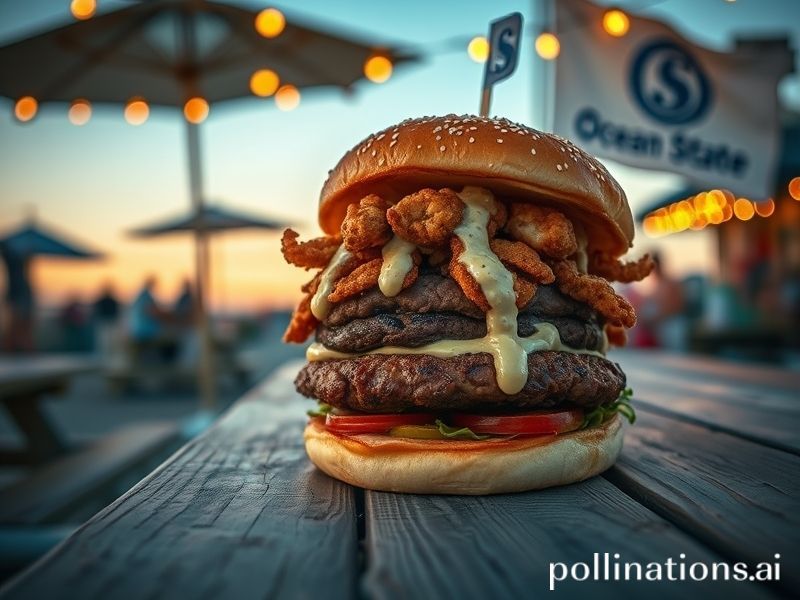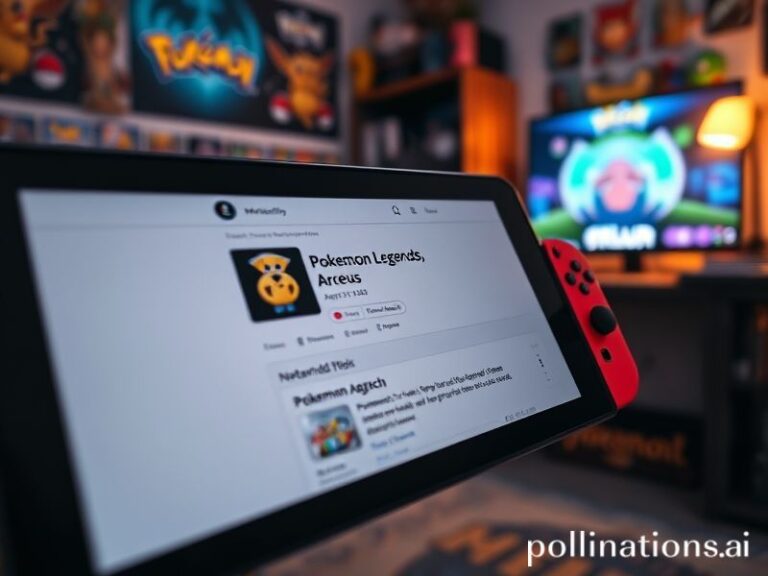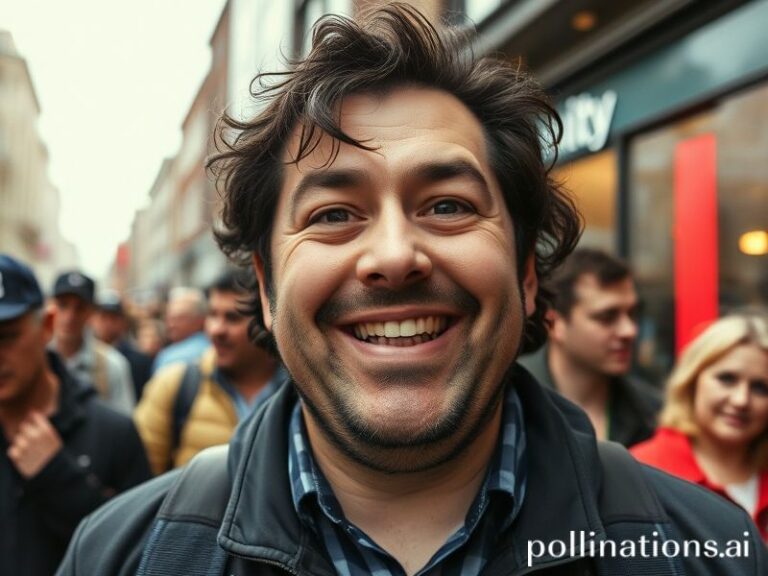How a Rhode Island Burger Joint Became the Vatican of Late-Stage Capitalism
**From the Ruins of Civilization, a Burger Rises: How Rhode Island’s “Crazy Burger” Became the Last Religion Standing**
In a world where democracy teeters like a drunk tourist on cobblestones and the Arctic melts faster than a Popsicle in Phoenix, humanity has found its newest spiritual anchor: a $16 hamburger served inside a renovated gas station in Narragansett, Rhode Island. The “Crazy Burger”—a tower of beef, bacon, and what locals mysteriously call “Rhode Island logic”—has achieved what centuries of philosophy could not: unanimous global consensus that we are absolutely, definitively, screwed.
International observers, those poor souls paid to monitor American decline, report that the restaurant’s line now stretches longer than the border wall Mexico never paid for. Japanese tourists fly 14 hours, skip the Statue of Liberty, and instead Instagram themselves weeping into a “Beach Bum” burger topped with pineapple and existential dread. The French, who once rolled their eyes at American cuisine, now surrender unconditionally to something called the “Pit Bull”—a creation so aggressively Rhode Island that it comes with a side of fried calamari and the phone number of a guy who knows a guy.
The United Nations, in its infinite wisdom and chronic underfunding, recently added Crazy Burger to its World Heritage list, right between the Great Barrier Reef (dying) and Venice (sinking). UNESCO officials admitted the decision came after realizing that the restaurant’s “Surf & Turf” burger—topped with lobster and the death rattle of the American Dream—represents “the pinnacle of human achievement, or at least the pinnacle of what humans can achieve while their civilization burns.”
Global economists have noted that the Rhode Island burger bubble now outperforms most European economies. The euro fluctuates based on Crazy Burger’s daily specials. When they introduced the “Brexit Burger” (served with chips instead of fries, and a lingering sense of regret), the pound sterling achieved its only stability since 2016. China, not to be outdone, has begun manufacturing knockoff Crazy Burgers in Shenzhen, though they taste suspiciously of surveillance and intellectual property theft.
Climate scientists—those eternal party poopers with their “facts” and “peer-reviewed research”—calculate that each Crazy Burger generates enough carbon emissions to drown a small Pacific nation. The restaurant’s response? A “Carbon Neutral” burger served on a solar-powered plate that doesn’t exist, accompanied by a coupon for 10% off your next coastal property purchase. Sales tripled.
The geopolitical implications stagger the sober mind. Russia has allegedly deployed burger-disinformation bots, claiming the “Putin Power” burger contains trace amounts of polonium-210. North Korea’s Kim Jong-un reportedly executed his chef for failing to replicate the “K-Jong Unbelievable” burger, though South Korean intelligence suggests he simply couldn’t handle the spice level. Israel and Palestine have found rare common ground in their mutual confusion over the “Holy Land” burger, which comes with both kosher and halal beef, plus a side of seasoned fries and unresolved territorial disputes.
As night falls on this brave new world, the line at Crazy Burger grows longer, snaking past the abandoned Blockbuster, around the opioid clinic, and straight into the metaverse where digital avatars wait patiently for NFT burgers that taste like cryptocurrency and broken promises. The human species, having mastered fire, split the atom, and invented reality television, has chosen to spend its final days arguing over whether the “Crazy” sauce contains mayo or aioli—a distinction that matters about as much as everything else we’ve accomplished.
In the end, perhaps this is our true legacy: not the Sistine Chapel, not the works of Shakespeare, but a small restaurant in the Ocean State where civilization came to die between two pieces of bread, extra cheese, hold the apocalypse—actually, better make that apocalypse to go. We’re busy.







